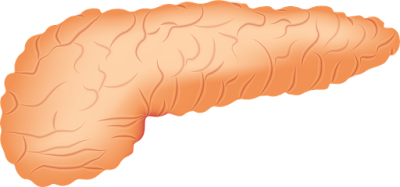Constipation in adults
What is good for constipation?
Constipation - this is a medical condition that is common and involves passing stool less than normal. Normally, the stool is hard and dry, and even small amounts excreted with difficulty. You may experience cramping, swelling, pain when tensing up and feeling of incomplete bowel movement.What causes constipation?
There are many factors that cause and contribute to the formation rub.These are:
insufficient intake of foods that contain fiber (cellulose);
insufficient intake of fluids;
lack of physical activity;
long-term intake of laxatives;
certain medications (consult your physician);
weakness or frailty physical;
pregnancy;
anxiety, depression (depression), and a great sadness and sorrow;
colon disorders that may require further investigation, or
chronic disease such as hypothyroidism, Parkinson's disease, multiple sclerosis.
Can constipation cause complications?
With constipation, fecal mass can fill the intestine and rectum so tightly that it will cause problems with the normal flushing, and colon, which is part of the large intestine is not strong enough to expel the stool. This is called so. beaten stool.Remember! With constipation, the bowel is over-filled, it can lead to accidental ejection of faeces (called incontinence).
Excessive straining during a bowel movement can cause hemorrhoids. Besides, hard stool, anal sphincter muscle stretching, can cause cracks in the rectum (cracks in the skin around the anus).
Excessive pressure when passing stools (extreme cases) can also cause rectal pushing a small amount of intestinal mucosa and, consequently leading to prolapse of the rectum.
How to prevent constipation?
If you have a problem, contact your doctor or specialist and fecal incontinence. For his life is worth to make a few simple changes. You need to drink at least six to eight glasses of fluid a day (1.5 L), unless your doctor tells you otherwise.Their diet is useful to introduce products with a high content of dietary fiber, which is located in vegetables and fruits.
Remember! Our body needs approximately 30 grams of fiber a day.
Products rich in dietary fiber are:
- all vegetables,
- all fruits (including dried);
- wholegrain breakfast cereal, cereal and bread, and
- legumes, such as beans canned beans legume and soy.
- bananas, oatmeal, fruit juices, vegetable puree and fruit compote or fruit from cans.
Remember! The greater amount of fiber in your diet entails increasing the amount of fluids you drink.We must also begin to lead an active lifestyle (eg, daily walks). Walking stimulates the intestinal contents moving and promotes regular bowel habits.
Preventing constipation
Diet is introduced greater amount of fluids and fiber. Should also talk to your doctor about medications you are taking action.Remember! Only when these steps fail, you can consider using laxatives. Laxatives should be taken only for a short period of time.
Types of laxatives
1) Measures that increase the volume of intestinal mass: they increase stool volume. Along with them, you should drink adequate amounts of fluids.2) The measures oiling: soften the stool.
3) Stimulant / irritant effect: they help in moving stool through the stimulation / irritation of the walls of the colon.
Remember! Consult with your doctor the type of laxative that will most suit your needs.
What to do if you do not stop constipation?
If it is acute or chronic constipation, you may need to proceed as follows:Night dose of stimulant laxatives measure, then the next morning rectal suppository or enema, and in extreme cases may be needed reiterated enema.
Remember! If you still have problems with constipation or diarrhea, or you have noticed a change in normal bowel habits, regardless of whether it is accompanied by pain or blood, go to the doctor.


Comments
Post a Comment